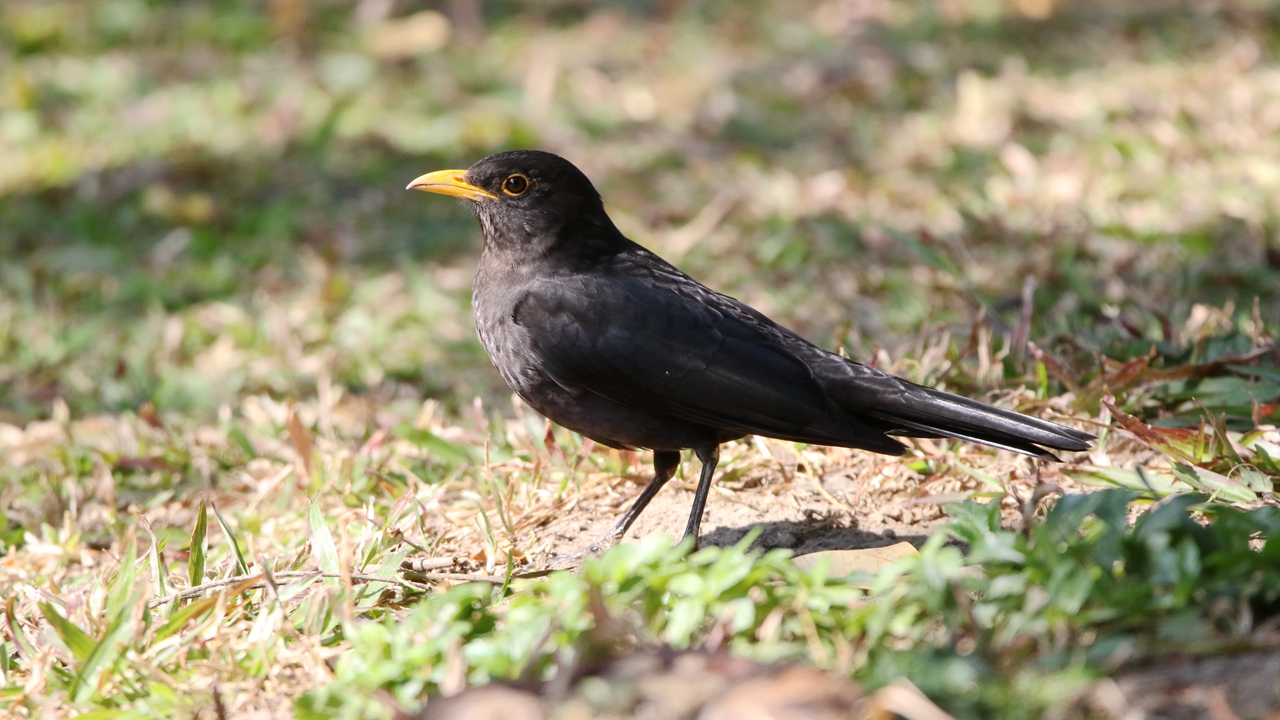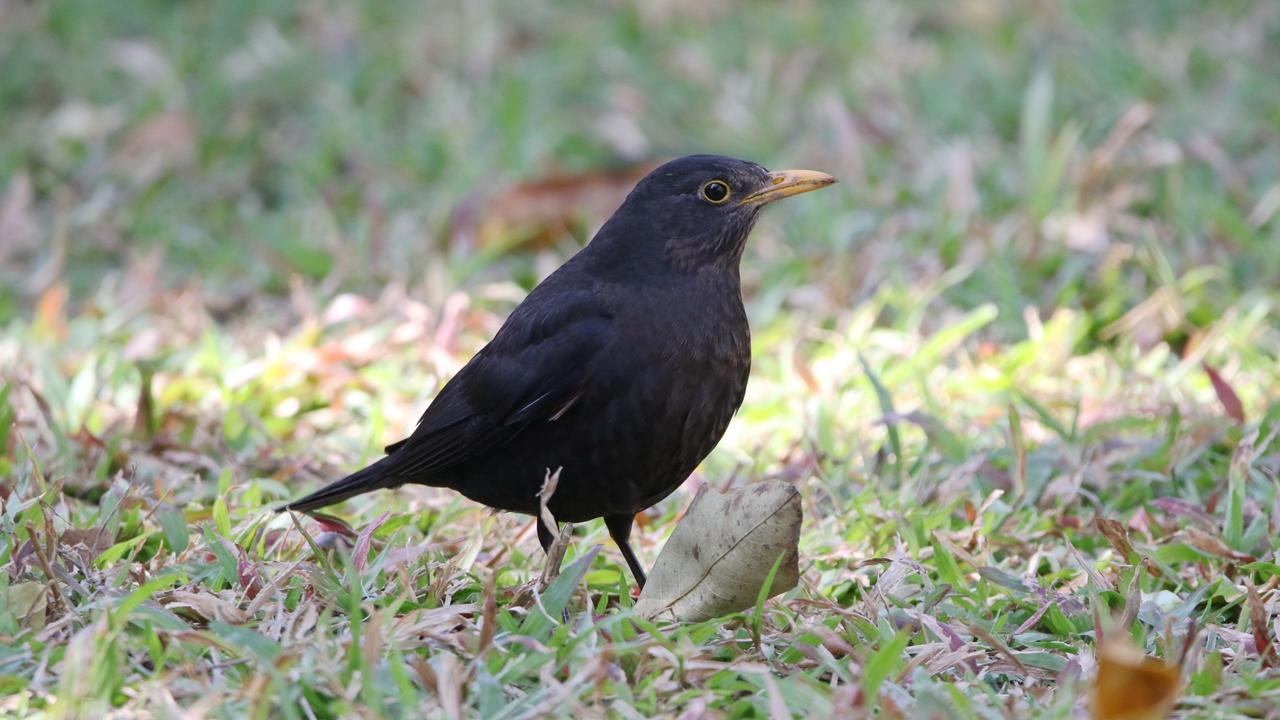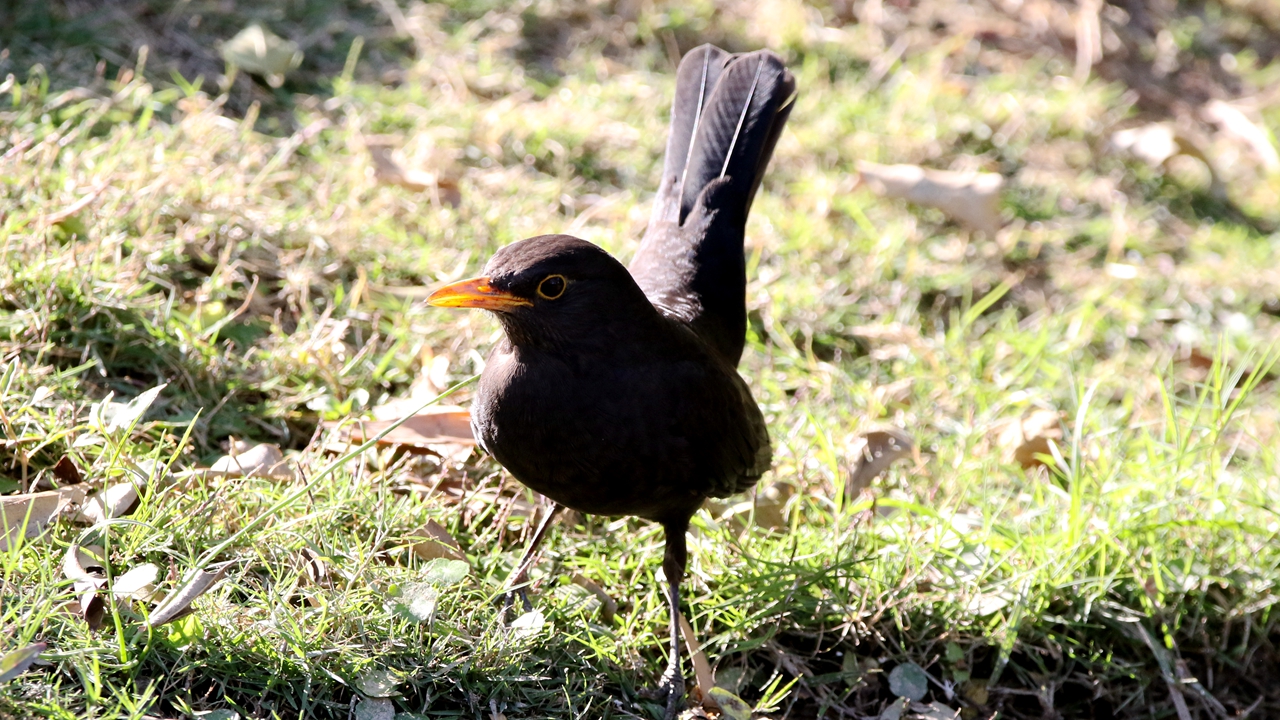The Chinese blackbird
Writer: Isaac Cohen | Editor: Liu Minxia | From: Shenzhen Daily

A Chinese blackbird is seen in Xiangmi Park, Futian District. Photos by Isaac Cohen
The Chinese blackbird
Of all of the species that inhabit Shenzhen, the Chinese blackbird (Turdus mandarinus) is truly one of a kind. It is a species endemic to China, which means you are not likely to see this bird anywhere else in the world. Although a few have been spotted in northern Vietnam and Laos, they are still not expanding their habitats outside China.
在深圳的所有本土物种中,乌鸫是十分特别一员。它们属中国特有种,大部分种群分布在我国,但在越南、老挝等东南亚国家亦可寻其踪迹。
Blackbirds are 28-cm-long birds covered entirely in a set of dark feathers, primarily black on top and wings, also with some dark brown ones on their underbellies. Juveniles display a molted throat with lighter-hued feathers.
乌鸫身长28厘米,通体大致黑色或乌褐色,头部及双翼为纯黑色,腹部呈深棕色。亚成鸟由于处于换羽期,羽色更浅,喉部夹杂白色,较为斑驳。

A Chinese blackbird is seen in Xiangmi Park, Futian District.
One of the most attractive characteristics of the blackbird is the presence of an orange ring around the eyes that complements an orange or yellowish beak.
乌鸫具与嘴部同色的、明黄色或亮橙色的眼圈,这也是本物种的重要辨别依据之一。
Blackbirds have an extensive diet consisting mainly of invertebrate animals such as worms, insects and snails. They also feed on berries and seeds, and on some occasions, even small vertebrates like lizards or frogs.
乌鸫食性极杂,喜食蚯蚓、昆虫和蜗牛等无脊椎动物,也吃浆果、种子甚至蜥蜴、青蛙等小型脊椎动物。

A Chinese blackbird is seen in Xiangmi Park, Futian District.
Their breeding season starts in March and can last until summer, when they can lay approximately five eggs per clutch, two or three times a year. The incubation period is about two weeks, and the newborns depend on their parents for a little less than a month.
乌鸫每年3月开始求偶,繁殖期可持续至夏末。雌鸟每窝最多可产5只卵,一年可繁殖两至三次。雏鸟经孵化两周后方破壳,再由亲鸟照顾约一个月后,方可离巢。

A Chinese blackbird is seen in Xiangmi Park, Futian District.
Chinese blackbird numbers are increasing, and they are not listed as an endangered species. However, being a species that can be found only in one country automatically makes them a vulnerable species. Conservation of their natural habitats is an urgent call in order for them to have a future on our planet.
乌鸫的全球种群呈增长趋势,因此并未被认定为受威胁物种。然而,由于本物种大部分种群分布在同一个国家地区,所以我们也并不能高枕无忧,而是要尽早行动起来,保护好乌鸫的栖息地,让它们继续在我们的星球上繁衍生息。